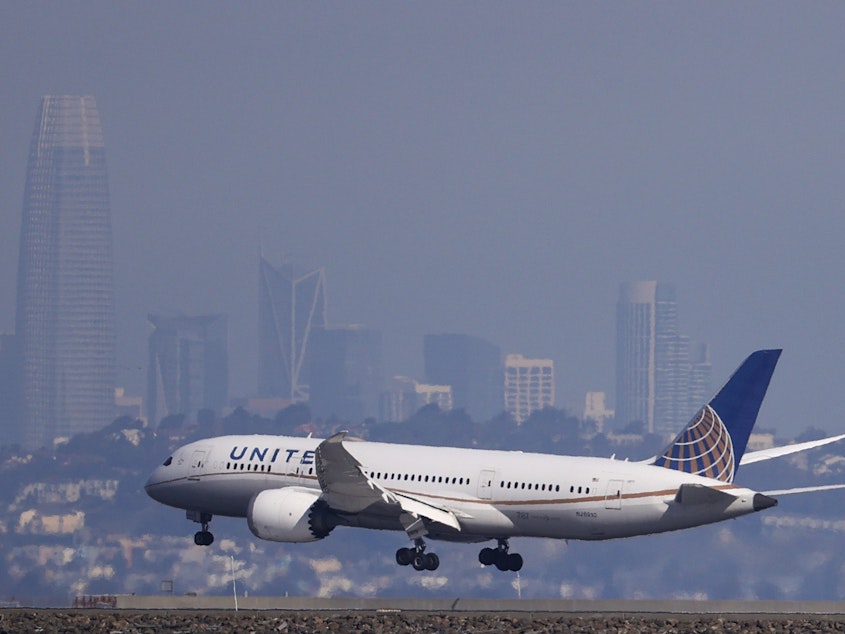United Airlines places huge order for Boeing 787 Dreamliners

United Airlines is announcing Tuesday what it says it the largest order of wide-body airplanes by a U.S. airline in commercial aviation history.
The Chicago-based carrier is purchasing 100 of Boeing's 787 Dreamliner jets, with options to order 100 more of the fuel-efficient aircraft.
The 787 is made with lighter-weight composite materials, which, along with technological improvements and a more aerodynamic design, will provide 25% greater fuel efficiency than the older 767s and 777s that they will replace, according to United and Boeing. Many of the 767s in United's fleet are over or approaching 30 years of age and airline officials say those will need to be retired soon.
Depending on the size and seat configuration, United's 787s can carry between 219 and 318 passengers. And with the greater fuel efficiency, the 787 also has a longer range, so United plans to use the planes to expand its long-haul routes to international destinations.
"Today marks another step, and a really big step, in solidifying United's position as the flag carrier of the United States and a leading airline around the globe," said United CEO Scott Kirby in a conference call with reporters announcing the order. He added that with this order, the airline is "accelerating our plan to connect more people to more places around the globe and deliver the best experience in the sky."
Sponsored
"The 787 is an amazing jet," says United's Chief Commercial Officer Andrew Nocella. "These aircraft are dramatically more fuel efficient, in fact, up to 25% more fuel efficient... they fly faster, they carry twice as much cargo, they have more premium seats. This is just really revolutionary for United."
United plans to configure the aircraft cabin with more higher priced premium seating, including the Polaris business class seats and "Premium Plus" seating, making the plane more profitable for the airline.
The massive order comes just three months after Boeing resumed deliveries of 787s to its airline customers after the FAA stopped certifying the planes for more than a year after discovering a series of production problems in its huge factory in North Charleston, S.C. The airplane manufacturer was forced to halt deliveries and slow down production in May 2021 after inspections found manufacturing flaws, including unacceptable gaps between fuselage panels, among other issues.
Boeing acknowledged last year that inspections "found areas where the manufacturing does not conform to the engineering specifications," adding that "none of these issues is an immediate safety-of-flight issue."
The FAA approved Boeing's plans to revise its quality control and production processes in July, paving the way for the aerospace giant to resume 787 deliveries in August.
Sponsored
United already has more than 60 Boeing 787s in its fleet now and expects to begin taking delivery of the 100 planes in this order in 2024, continuing through 2032.
The list price for the planes is around $250 to $300 million each, depending on the size, putting the total cost of the deal in the ballpark of $25 billion, although airlines usually negotiate steep discounts, especially with large orders like this.
"Airlines don't talk about prices," said United's Chief Financial Officer Gerry Laderman, in declining to say how much the airline is paying for the planes. As for whether the historic order is the most any airline has ever spent on aircraft, he said, "We wouldn't know, actually... we can't really compare whether the total dollars of this order are greater than the total dollars spent by another airline... we don't really know what they pay."
United also announced it is exercising options to purchase 44 Boeing 737 Max aircraft for delivery between 2024 and 2026 and ordered 56 more narrow-body Max planes to be delivered between 2027 and 2028. [Copyright 2022 NPR]



